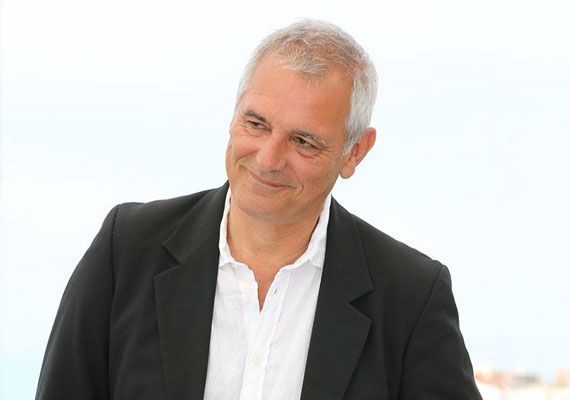Laurent Cantet • Director
"A common framework for understanding young people’s worldview"
- An encounter with French filmmaker Laurent Cantet to talk about The Workshop, shown in Un Certain Regard at Cannes, and which is arriving in French theatres on 11 October

Cineuropa met up with Laurent Cantet, winner of the 2008 Palme d’Or (for The Class [+see also:
film review
trailer
interview: Carole Scotta
interview: Laurent Cantet
film profile]) at Cannes to talk about his new film, The Workshop [+see also:
film review
trailer
interview: Laurent Cantet
film profile], presented in Un Certain Regard. The director-screenwriter describes his method and the motivations that guide him, as well as his interest in the younger generation and its view of the world. He also talks about the central character of Antoine and some of the biggest challenges of his film, which is being distributed by Diaphana this Wednesday 11 October in French theaters.
Cineuropa: What was your starting point for writing this extremely deep and powerful screenplay without ever losing focus (with Robin Campillo, also the co-screenwriter of The Class)? The workshop? The disturbing character who stands out?
Laurent Cantet: The intention was to try to paint a portrait of the generation that today is 20-25 years old and finds itself faced with a world that is much more complex than it has ever been, more violent, one that leaves them with very little space to exist. The idea of the writing workshop made it possible to provide these young people with a common framework for thinking and working. It’s like that in all of my films: I really like starting with a microcosm that becomes a scale-model image of our society, and then gradually, individuals stand out, emerging in front of this very documentary-like gaze that I provide at the beginning, and that then brings us gradually towards a fiction. I think elsewhere, the novelistic aspect is much more developed than my previous films. I hope that this movie scares people, that we have succeeded in giving it some thriller touches – the reactions at Cannes suggest that that is the case, as people told me they were very scared at certain moments.
What also interested me was being able to work with a group of young people again because they have lots of things to tell us about what they are that will often contradict prejudices and show that there is much more involvement and complexity in their ways of thinking. It seemed interesting to me to look at how their world is constructed, between their circle of friends and that other relationship with the much larger world that they have through the internet and all of these means of communication that they use regularly.
So the idea was to describe this moment in our history, with something that can also be frightening, since it’s true that young people are faced with a violent world.
Besides the murder-mystery that the young people are drafting in the workshop, just beneath the surface, one could say that they are also trying to untangle another murder, a metaphorical one: of certain values, of certain points of reference.
The film is indeed trying to observe the rupture that exists today between the world of "old people", of which I am unfortunately a part, which has a way of thinking about the world that has many more references than theirs – or the references are different (that of blue-collar culture no longer exists, for example). History, for them, began yesterday. To them, ours seems so ancient that they don’t want to refer to it in order to analyse today’s world. Their perspective is different. It’s these perspectives that I show, through the discussions conducted in the workshop, but also through a range of images (internet, archives, video games, etc) gathered together - and which for me, by understanding the way in which we represent it, underline the violence of our relationship with the world.
The character of Antoine, who emerges midway through and takes us by surprise, much like the teacher in the film (Marina Foïs), is inhabited by a void.
This character is for me the picture of aimlessness on every level: his daily life is idle, and he lets himself get swept along by various people. At the same time, he contains so much violence that the work of writing a mystery novel, which actually requires invoking this same violence, suddenly opens the floodgates, and makes him start to question the legitimacy of a certain kind of violence, and also the possibility of using it, and it’s true that he becomes more and more disturbing. Nevertheless, for my part, I’m more afraid for him than of him. That was even one of the challenges of the film: to create a character who is both insufferable and appealing. I think that just like the teacher, as viewers, we have a relationship of both distrust and interest mixed with desire for this young man, and we feel like we have to save him.
(Translated from French)
Did you enjoy reading this article? Please subscribe to our newsletter to receive more stories like this directly in your inbox.
















